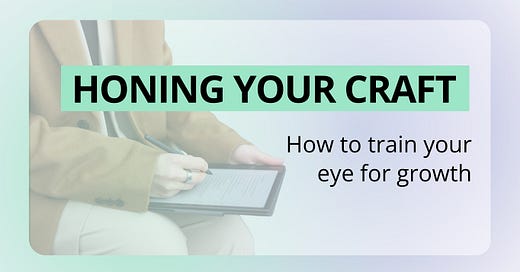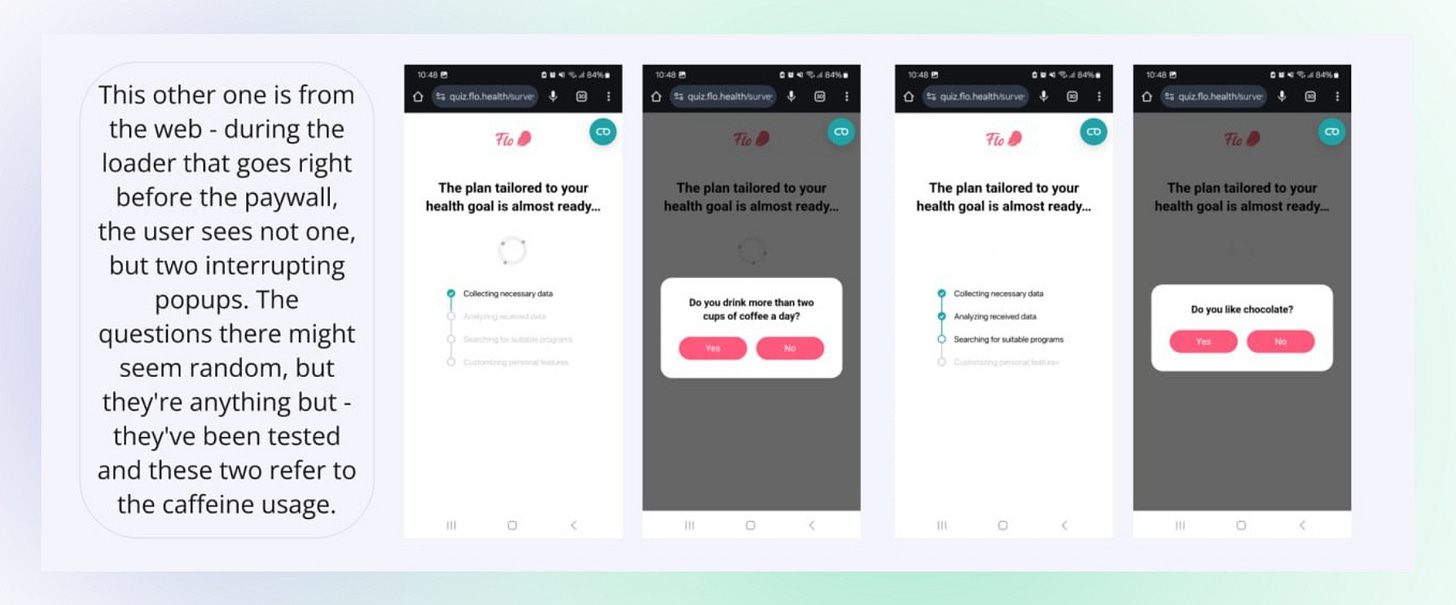This week, I want to talk about honing your craft, or what I call "training your pattern recognition." To grow funnels, come up with good, high-impact hypotheses, and avoid reinventing the wheel, you need to pay attention to what's happening around you in the industry. What are the other products doing? What new things are they trying? Could any of those ideas be adapted to your product?
This is how (I think) those interrupting popups on loaders became an onboarding industry standard: We first spotted them on Noom, tested them vigorously at Flo, and soon others picked them up. Now FunnelFox, the onboarding constructor, includes a base loader with three interrupting popups by default.
Why am I sharing this? Because you need to train your eye—look around, study, absorb, and connect the dots. That’s how you create high-converting hypotheses.
To do that i recommend two things: following people and companies (and taking notes of what catches your eye) and going to conferences.
Following, watching, noting down
Stay in the loop by following the people, teams, and products that stand out in your field. Observe what they’re doing, make notes of anything new that catches your eye (start your own collection in FigJam or Miro) and consider how you might adapt it. This process helps you spot trends faster, keeps your mind open to fresh ideas, and refines your pattern recognition skills.
Here are the B2C people I follow:
Hannah Parvaz - app marketer of the year, know a LOT about acquisition for B2C and has seen so many cases - her frameworks are extremely helpful.
Daphne Tideman - works only with eco-friendly and wellness startups, has a super insightful newsletter.
Leonid Yuriev - a CEO of the onboarding no-code tool, writes about psychology in monetisation and onboardings.
Ihar Koshaleu - knows a lot about paywalls and cancellation flows.
Conferences
Conferences are a whole different story. I love attending them because they get me away from my screen so I can focus on the talks. Let’s be honest—when was the last time you watched a talk recording with 100% attention, without doing something else in the background? Being there in person lets you really absorb the content.
I’ve also spoken at a few conferences myself, and as a speaker, you get an extra perk: you get to connect with other speakers in a much more personal way. That kind of direct interaction can open up new levels of insight and collaboration.
So, I’ve put together a list of 2025 conferences focused on growth, apps, and a bit of FemTech—fields I’m excited about—which are all happening in Western Europe.
Stay tuned and until the next one!







